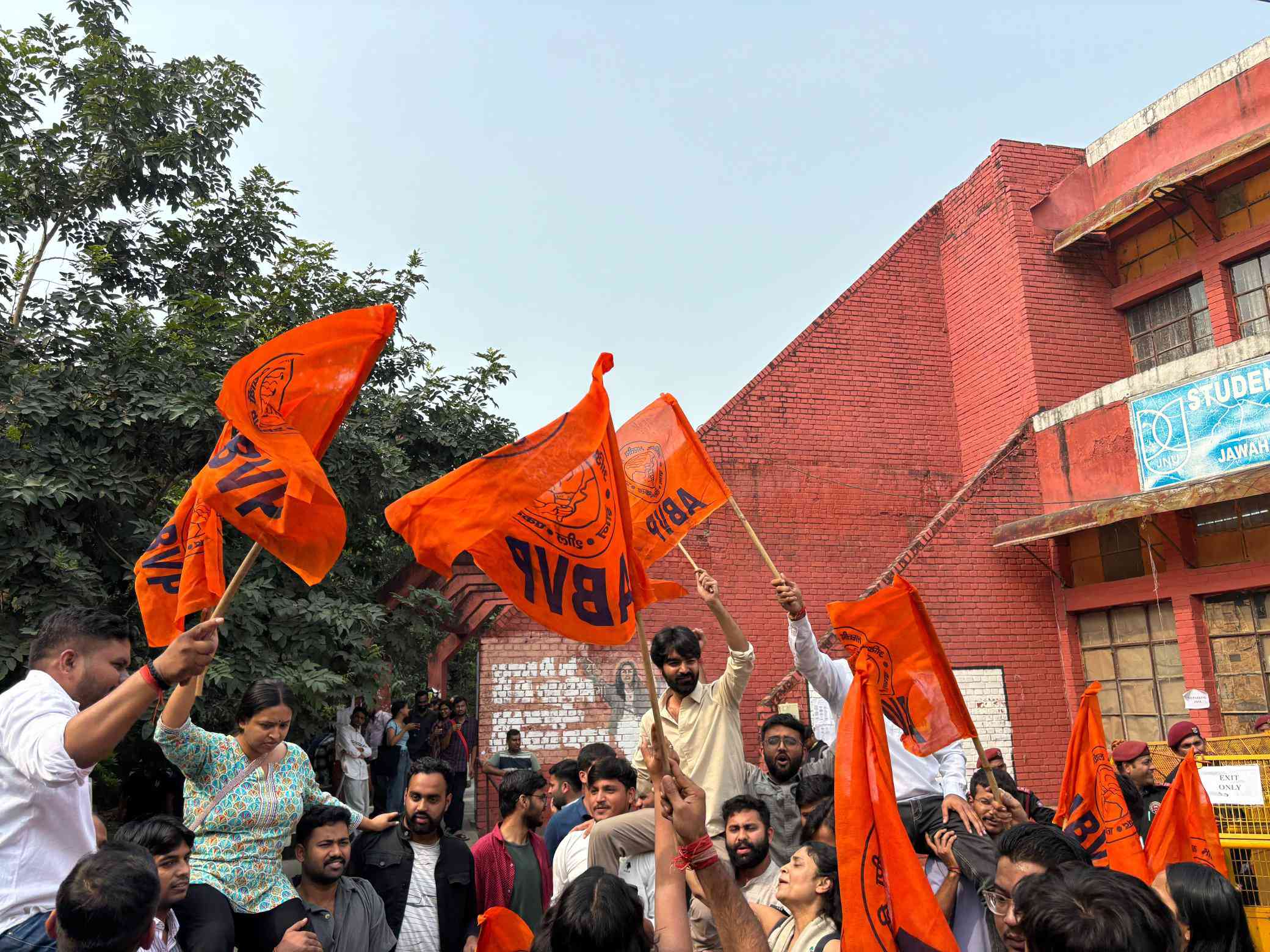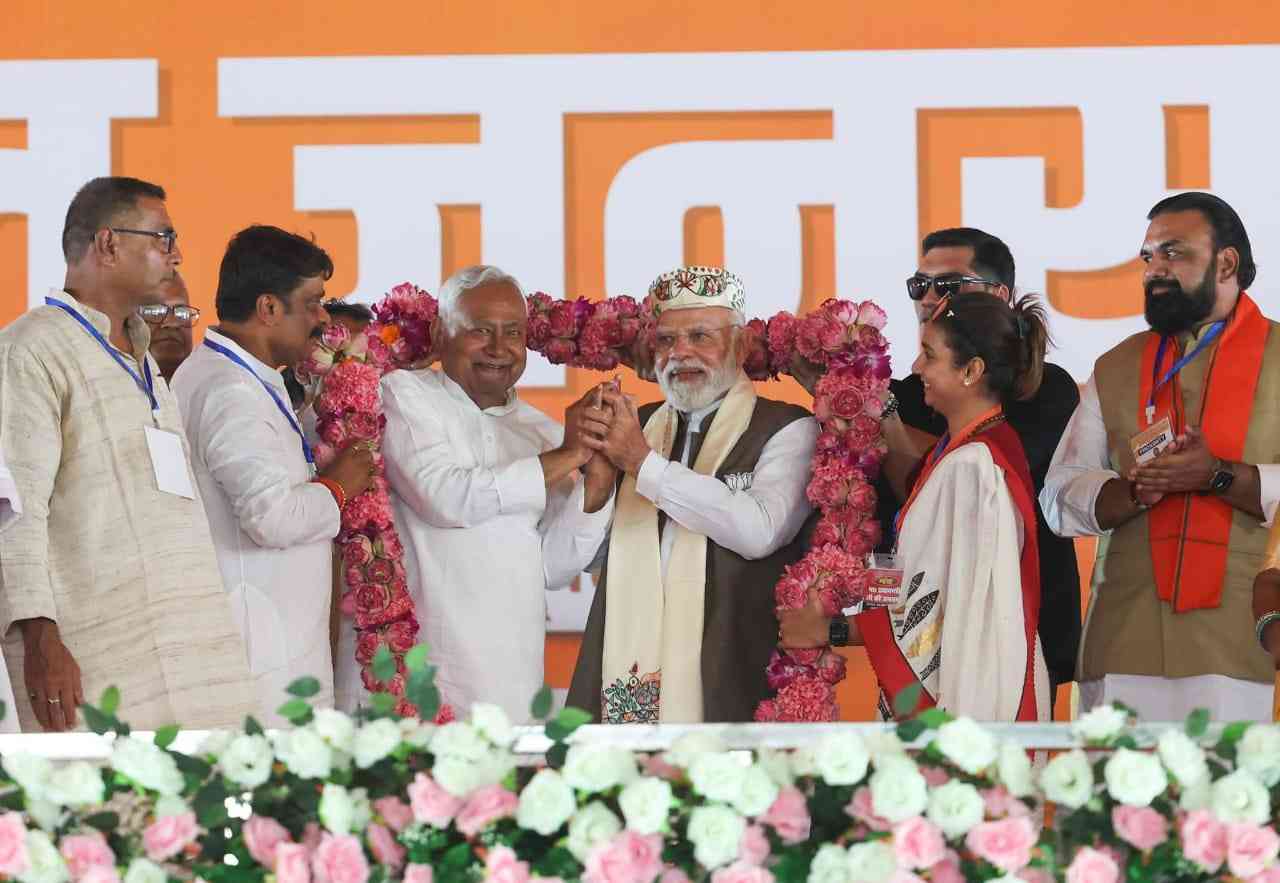[ad_1]
In moments of perceived political crisis, the demand for a “united opposition” gains urgency in India’s multiparty electoral system. When confronted with a powerful right-wing party that they view as a systemic threat, such as the Bharatiya Janata Party in contemporary India, many observers and citizens advocate for disparate Left and centre-left, or progressive-secular parties to set aside their differences and unite to form a common front.
The logic of tactical unity is emphasised, even at the cost of ideological or programmatic coherence, because the hegemonic adversary undermines the core values they otherwise share.
Although political parties occupying broadly the same ideological bandwidth may agree on normative values such as secularism and social justice, they differ sharply on particular approaches to social welfare, preferred models of economic development, issues they deem vital such as regional autonomy or land reforms. Sometimes the parties have histories of deeper rivalries and incompatible political cultures such as the Left parties and Congress in Kerala, or the Aam Aadmi Party and the Congress in Delhi.
A difficult democratic paradox
However, these calls for unity should consider several important consequences. First, pre-poll unity requires political formations to suppress or paper over important substantive disagreements that would otherwise enrich the democratic process by offering voters real choices among different visions of progressivism.
Second, a hastily forged coalition risks becoming a fragile and opportunistic arrangement, prone to internal contradictions and breakdowns once the immediate threat is managed or elections are over.
Democracy thrives on meaningful debate, and the enforced convergence of distinct political traditions into a single anti-right-wing bloc may impoverish public discourse.
Moreover, reducing political competition to a binary contest between a dominant right-wing formation and an ideologically blurred opposition front could harden polarisation. It encourages the consolidation of ideological extremes and weakens the space for moderate, issue-based politics.
Ironically, this polarisation often benefits the dominant party because it frames the political field as a battle between patriotic stability (claimed by the right) and chaotic opportunism (attributed to the opposition). Voters who might otherwise seek alternatives are forced into binary choices, which may, in many contexts, favour the side already seen as “strong” and “decisive”.
In a first-past-the-post electoral system, however, the structural incentives do favour coalition-building when faced with an electorally dominant party. Vote-splitting among ideologically similar parties can enable a well-organised opponent to win even with a minority of the total vote share.
This is precisely why pre-poll alliances are often deemed unavoidable despite their ideological costs. Without electoral coordination, the anti-incumbent or anti-hegemonic vote risks being fragmented, leading to repeated victories for the dominant party even without majority societal support.
Electoral reforms to find suitable alternatives to the first-past-the-post system do not seem to occupy any space in the agenda of national or any of the regional parties. The challenge, then, is to find forms of cooperation that allow for both electoral efficacy and ideological differentiation. This is admittedly an undertaking that is much easier to theorise than to practice.
The lesson from JNUSU politics is nuanced
A similar dynamic is vividly observable in student union politics in institutions such as Jawaharlal Nehru University in Delhi. Here, Left and progressive student formations, ranging from parliamentary left organisations to more radical or issue-based groups, have historically commanded significant influence.
Other formations towards more centre of the political spectrum command attention too. (Centre-of-the-right, though, has disappeared because, arguably, there is no compulsion now for the right-wingers to appear reasonable.)
Despite endless nostalgia-laden lamentation to the contrary, in JNU, the culture of left-progressive political engagement is still dense and layered. Young activists and voters encounter ideological traditions in all their complexity, they debate and stress over their differences, and cultivate both a passion for idealistic politics and a pragmatic sense of realpolitik.
Presenting the official NSUI central panel candidates for JNUSU 2025-26! 🌟 Your vote matters—support Vikash, Shaikh Shahnawaz, Preeti, and Kuldeep for positive change at JNU. Vote for NSUI, vote for a better tomorrow! 🗳️ #JNUSU #NSUI #VoteForChange pic.twitter.com/XrxVOvrPuv
— JNU NSUI (@jnu_nsui_) October 30, 2025
Unlike national electoral politics, where mass mobilisation pressures often flatten distinctions, the university setting allows (and even prizes) the sharpening of ideological debates among groups that are otherwise broadly aligned on foundational values of secularism, social justice, anti-casteism, anti-authoritarianism.
Disagreements over questions such as the correct strategy towards the state, attitudes towards struggle tactics, modes of economic redistribution and approaches to identity and cultural politics are not seen as debilitating divisions but as crucial exercises in democratic engagement and political education.
However, even in such politically sophisticated environments, the dilemma of coalition-building against a stronger ideological adversary – such as right-wing student organisations affiliated with national parties – raises pressing questions.
Invincible. Undefeated. Unstoppable. pic.twitter.com/xOajRVz7kL
— ABVP JNU (@abvpjnu) September 21, 2025
There is often a palpable tension between the desire to maintain ideological integrity and the practical necessity of preventing the consolidation of regressive forces. Student activists recognise that the stakes are high. Allowing the right-wing to dominate student politics can fundamentally reshape the campus ethos and diminish the space for critical thought itself.
The experience of forming electoral alliances, often after intense negotiations and programme-based discussions, prepares them to uphold ideals but also to negotiate, compromise, build alliances, and navigate the difficult terrain between ideological commitment and political strategy.
Between the previous Jawaharlal Nehru University Students Union elections in March last year and the upcoming one on November 4, students have shown that political contestation among broadly aligned groups is not a weakness but a form of democratic strength – provided it is anchored in a shared commitment to foundational principles and a willingness to prevent larger authoritarian threats from capturing the field.
Striking this balance between principled debate and strategic cooperation is difficult but necessary, both within the campus and beyond it.

What is politics, after all?
In discussing coalitions, whether in national elections or in student union politics like that of JNU, one must reckon with a reality often ignored in discussions that, according to me, are inherently anti-politics. Politics is not only the contest of ideas, it is the contest for power. This is something held in contempt by liberal commentators, who revile politics as immoral and dirty, because they treat the quest for power (especially by the historically marginalised) as distasteful.
This is a deeply pervasive attitude that subconsciously confuses the “culturally left” as coming from historical privilege.
Political parties, student organisations, and electoral fronts are not neutral vessels carrying ideological discourses and positions. They are institutions specifically designed to accumulate, exercise and survive through political power. They aspire to both shape ideas and to control structures of governance and decision-making. Thus, while ideological alignment is important, the deeper imperative is organisational survival and dominance.
While the moral and ideological urgency to oppose authoritarian or regressive forces is real, so too is the structural compulsion that drives political parties to preserve themselves. Political actors must also calculate what unity would cost them: would it erode their organisational independence? Would it extinguish their distinct ideological appeal? Would it reduce them to mere junior partners, vulnerable to future irrelevance or absorption?
A question of survival
Coalitions, therefore, are never truly equal. Even among parties with ostensibly similar values, the relationship within a coalition is one of hierarchy and negotiation, often of coercion. The larger or more resource-rich partner in an alliance can impose terms, marginalise the agendas of smaller allies, and ultimately absorb or displace them.
Recent Indian political history offers numerous examples. The Aam Aadmi Party, which once projected itself as an anti-establishment force, has seen its distinctive identity strained under the pressure of broader oppositional alliances. The Shiv Sena, a dominant regional player, has found itself in an unlikely corner of the ideological spectrum because of the continued threat of being diminished and consumed by the BJP.
On the other hand, parties such as the All India Majlis-e-Ittehad-ul-Muslimeen find themselves treated as perpetual pariahs in the North Indian states because the dominant parties in the region have no appetite to absorb their agenda.

Meanwhile, other parties, like the Janata Dal (United) under Nitish Kumar or smaller regional outfits, have excelled at securing a berth in winning formations, often displaying ideological contortions to ensure continuity in power. Such pragmatic opportunism then becomes an instinctive behaviour for political organisations that must navigate the brutal realities of first-past-the-post competition.
Furthermore, any discussion of coalition-making must confront the role of political violence – both direct and structural. Coalitions are not formed, sustained, or broken in purely deliberative arenas. They are shaped by contests over territory, control of resources, domination of discourse, and sometimes by the calculated use of coercive tactics.
The threat or use of violence – whether in the form of street-level clashes, intimidation of cadres, criminalisation of rivals, or through newer technologies and practices of systemic exclusion – remains a lurking reality behind the rituals of coalition-building.
Working with voters
Another dimension often overlooked in discussions about left-progressive coalition-building is the role that voters themselves must play.
When calls are made for broad unity to avoid splitting the anti-right-wing vote, it is often assumed that voters will be confused by a diversity of ideological options and unable to navigate strategic choices. The fear is that too many alternatives will divide opposition sentiment and hand victory to the dominant party.
But in a democracy worthy of the name, the solution cannot be to reduce the number of choices or simplify the field artificially. In Jawaharlal Nehru University Student Union elections, of course the voters are intellectual elites, and parties prepare them, expect and demand from them greater political maturity.
Political parties must frontally ask voters to engage with ideological diversity without losing sight of the broader stakes. They must cultivate the ability to deliberate among competing visions. Manifestos or campaign speeches should not be mere formalities or click-bait attention grabbers but tools of political education.
Electoral choices should not be treated as impulsive reactions to campaign atmospherics but as considered decisions made in conversation with fellow citizens about the future of their polity.
From the Jawaharlal Nehru University Student Union elections, we can take away that it is not the task of political parties to present an artificially clean and easy choice but it is definitely their task to educate citizens to become capable of navigating complexity.
Only through such practices can a democratic society sustain both diversity of thought and strategic clarity, resisting the twin dangers of fragmentation and forced conformity.
Just like on the Jawaharlal Nehru University campus, while coalition strategies among parties remain important, the deeper, long-term work must be done among the voters through practices of reflection, discussion and conscious political action. Without this, democracy would become a mere aggregation of managed preferences, rather than a living, deliberative practice of self-governance.
Ghazala Jamil is an Assistant Professor at the Centre for the Study of Law and Governance, Jawaharlal Nehru University.
[ad_2]
Source link
